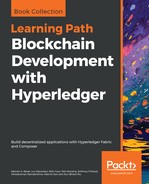Consider the case of music. One hundred years ago, it would have been recorded on bakelite, and then through a series of technological innovations, it moved to vinyl, Compact Disc, digital mini-disc. Each step was cheaper than the previous, and of higher quality. But, about 25 years ago, something different happened! The first MP3 format was introduced to support high-fidelity audio capture.
This was the de-materialization step, and it was quite different to the other steps. Yes, it was cheaper, and of higher quality, but critically it stopped music having a physical representation. This de-materialization pattern is increasingly common—financial products such as bonds, securities, swaps, mortgages, and such are primarily represented digitally. More and more documents and forms are becoming digitized—from trivial examples such as airplane and train tickets, to more important education certificates, and employment and health records. This move towards digital means that the blockchain has more relevance than we might otherwise assume.
So, when we implement a business network on a blockchain, we are often close to processing the actual assets in a business network. And, it's arguable that even in the case of tangible assets, the information about assets is as important as the asset itself! This seems like hyperbole, but think about it for a moment. Let's say you own a car. The car needs to have petrol, it needs to be taxed, serviced, and insured. It needs an annual test to make sure it is roadworthy. There's a lot of economic activity centered around that car of yours! Which means that the information about the car is very valuable —indeed, over the lifetime of a car, the total running costs will usually be double the cost of the car. So, maybe the information about the car is more valuable than the car!?
